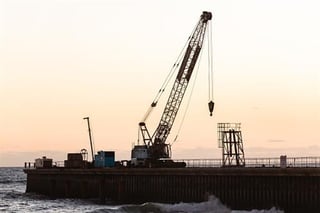
Did you know that 25% of businesses that go through a disaster or loss never open their doors again? This is primarily due to insufficient insurance or not being able to prove the value of equipment and other items that were lost. How do you protect your business against this kind of unexpected problem? An equipment appraisal can go a long way towards ensuring you have sufficient insurance to protect against a loss or proving equipment value for an insurance loss settlement. Here's how:
Need an Insurance Loss Settlement? Equipment Appraisals Get You There
Determining Insurance Coverage
When you're buying business insurance, you want to make sure your equipment is being covered for its actual value. Why? Many people rely on tax return depreciation as a quick guide to machine value, but the actual machinery value may be much higher or lower than what the standardized depreciation value allows.
If it's overvalued, you may be paying too much for premiums while not receiving the full amount you've paid for during a loss. If it's undervalued, the insurance company may balk at paying you the full value during a loss because you didn't pay for sufficient coverage. A machine appraisal can go a long way to provide proof of value for your equipment and help you decide how much coverage you need to cover business losses during a fire, flood or other disaster.
Dealing with a Loss
But what about when your business suffers a loss? During that stressful time, you want to reach a settlement as quickly as possible so that you can get new equipment and get back into the swing of things. When you do have a loss, can you prove what your equipment was actually worth? Having proper documentation complete by a certified machinery appraiser available for your insurance company helps to prove the equipment's value and goes a long way in an insurance settlement. It ensures that you'll receive a settlement that is both accurate to your loss as well as speeding up the process. Why? Because a certified appraiser's report uses a specific methodology and approach to determine equipment value.
But what if you haven't had a machine appraisal performed before the loss? Fortunately, appraisers are often able to go back in after a loss and determine equipment values at the time of the loss by taking a solid look at the condition of the machinery, the market at the time of the loss, any repair and maintenance logs that are still available and similar information. Because this type of valuation is difficult, you'll want to make sure the appraiser you're working with is certified, has experience in equipment appraisal and specifically has experience in post-loss machinery valuation.
By having a machinery valuation performed before you have a business loss, you can make the insurance loss settlement process go much more quickly and smoothly. But when determining your equipment values, make sure you're using a certified equipment appraiser who has a certification in or significant experience in machinery valuation. Why? Because documentation from a certified appraiser holds legal weight and will hold up in court if your insurance company is reluctant to pay out.


